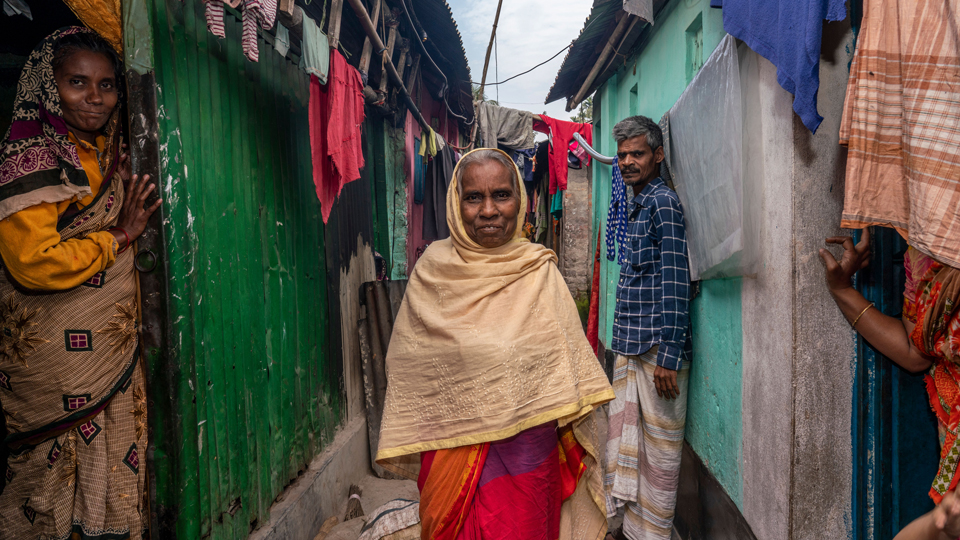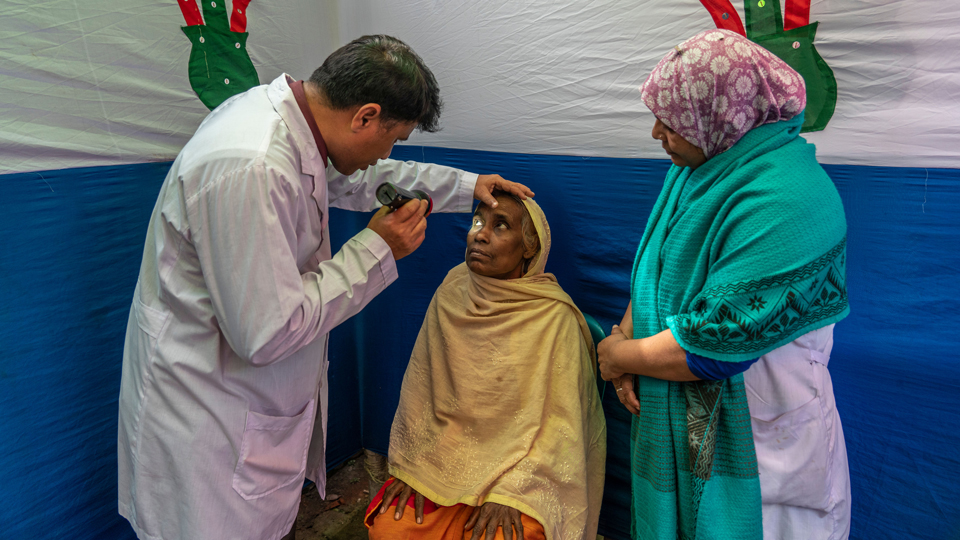Sightsavers’ initiative addresses eye health for 2.3 million marginalised people
Elderly and trans people in Pakistan and Bangladesh, as well as women and those with disabilities, have benefited from the Right to Health programme

15 April 2022
An inclusive health initiative in Pakistan and Bangladesh has helped 2.3 million marginalised people access basic eye health.
The Right to Health programme, run by Sightsavers and funded by the UK Government through UK Aid Match, focused on groups who have traditionally faced barriers accessing treatment, including those with disabilities, women, elderly people, and transgender communities.
The programme ran from July 2018 to December 2021, and it is hoped that its success will lead governments and partners to continue to build on their support for marginalised groups and improve eye health services in Pakistan and Bangladesh.
Right to Health facilitated 85,000 cataract surgeries, eye health prescriptions for 847,000 people, and over one million non-surgical treatments during the three and a half years it was running.
No one should be left behind when it comes to eye health
Sightsavers says the programme has demonstrated why it is so important for governments around the world to make eye care an integral part of their national health and education systems.
As part of the programme, the charity worked with the Pakistani and Bangladeshi governments to draft policy recommendations and guidelines on how to make eye health accessible to all.
Syeda Asma Rashida, Sightsavers’ project manager for Right to Health in Bangladesh, said: “Access to quality eye care can have a transformative effect on individuals and communities. We know that good eye health increases access to education and the workplace, and improves productivity and wellbeing.
“We found that people with disabilities, older people, women and other marginalised groups face many barriers when it comes to accessing health care.
“Continued resource, funding, and commitments to health system strengthening are needed from governments and other organisations, if we are to reduce the burden of vision impairment around the world and ensure inclusive health access for everyone. No one should be left behind when it comes to eye health.”

Almost half of global vision loss is preventable or treatable with quality eye care services. Despite this, urgent resources and funding are needed to stop the number of people who are blind trebling by 2050.
Marginalised people, particularly elderly people and women, are more likely than others to bear the burden of visual impairment, significantly impacting their lives. Providing treatment reduces poverty and helps individuals regain their independence.
Those who traditionally face barriers to health service access were reached through initiatives including community-based screenings and improved health facility accessibility. Health workers were also trained on disability, sign language and gender inclusion.
Rashida added: “It is now the responsibility of the governments to continue this work, to endorse and implement the guidelines and make inclusive eye health a reality across both countries. The aim is to make eye health services inclusive, equitable, affordable and accessible for everyone.”
Hasina’s story

As Hasina’s sight deteriorated, she was finding it increasingly difficult to care for her family and keep up with her responsibilities at home.
Her son-in-law, Israfil, heard about Right to Health’s free eye screenings whilst at a local mosque, and after attending Hasina was diagnosed with cataracts and underwent free surgery.
Hasina said: “I could not do any household work properly, could not recognise my grandchildren from a distance; everything seemed very hazy.
“Now I can see everything very clearly. I am very happy now. After the operation, I am now strong, assured, relaxed. I regained my confidence. It is important that I can take care of myself.”
Lead image: Hasina at the eye camp in Rangpur, Bangladesh with the help of OBAT for the Bihari Community.
Advertisement
More Charity articles
-
A quarter of blind and partially sighted people miss out on their disability benefits, according to new report
-
Heidelberg Engineering teams up with Orbis to provide education to practitioners globally
-
Establishing Sight Loss Councils in Scotland
-
“Smaller organisations don’t realise the impact they can have”


Comments (0)
You must be logged in to join the discussion. Log in